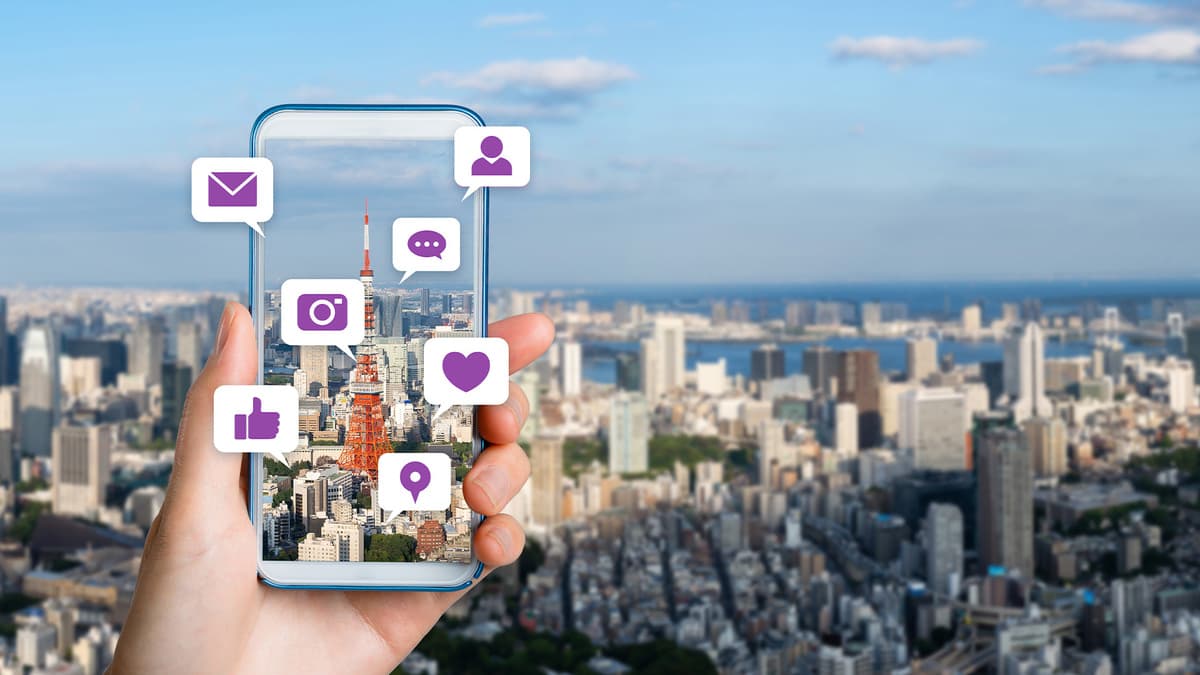
Digital marketing in the tourism sector
In this busy and increasingly digitized world, the tourism sector cannot be left behind in adopting effective marketing strategies.
With increasing competition and evolving consumer preferences, tourism companies must be proactive in their marketing approach to stand out in the face of such a saturated market.
Digital marketing in the tourism sector
- Digital marketing strategies for destinations and tour operators.
- Creating engaging and visual content for tourism
- Use the blog as the center of your content strategy
- Importance of local SEO and mobile marketing
- Social mediamarketing for tourism promotion
- Email marketing and loyalty strategies
- Online reputation management and reviews
- Analysis of successful campaigns in the tourism sector in the Americas
- Technological innovations in digital tourism marketing
- With SUBE, it's time to RISE in the right direction!
Precisely for that reason, here you will explore various digital marketing strategies that were specifically designed for the tourism sector, from creating engaging content to online reputation management and emerging technological innovations.
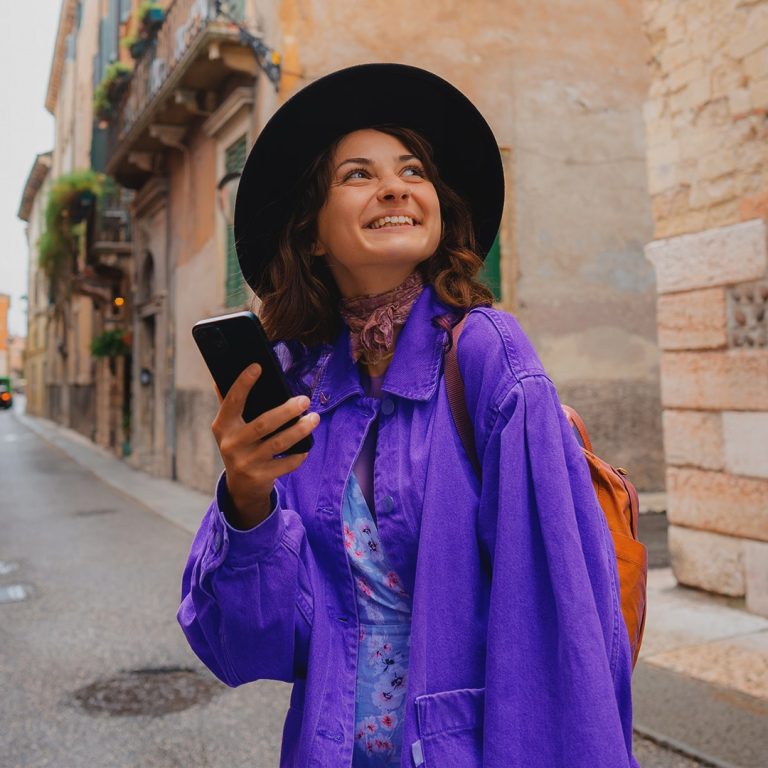
Digital marketing strategies for destinations and tour operators.
This niche involves a thorough understanding of the target audience and the ability to reach them at the right time and through the ideal channels.
An effective strategy starts with identifying key market segments and creating customized messages that match them. This may involve the use of advanced segmentation techniques, such as geolocation and online behavioral analysis, in order to tailor marketing campaigns to the specific needs and desires of each segment.
Below, you will find some strategies for this 2024 that may be useful:
Online presence
This is achieved through the creation of attractive websites, publishing relevant content on blogs and managing active profiles on social networks.
Search engine optimization or SEO
Search engines, such as Google, are a key tool for travelers looking for information about specific destinations. It is essential that your website and content are optimized to appear in the top search results.
Social media
Platforms such as Facebook, Instagram and X offer massive reach and are ideal for promoting tourism destinations. Post visually engaging content, such as photos and videos, to capture the attention of travelers and encourage interaction with your online community.
Emailing
Despite the rise of social media, emailing is still an effective tool for reaching customers. Send newsletters, special offers and updates about your travel destinations via email to keep your customers informed and engaged.
Chatbots
Automated chatbots can enhance the user experience by providing quick answers to frequently asked questions in real time. Integrating these tools into your website or applications can help provide instant assistance and improve customer satisfaction.
Videomarketing
Videos are a powerful way to engage travelers, showcase the beauty and unique experiences of your travel destinations. Create interactive videos that highlight the sights and activities available to inspire travelers to visit your destination.
Augmented Reality (AR)
Augmented reality offers travelers the opportunity to explore tourist destinations virtually before physically visiting them. Developing AR apps or experiences that showcase sights and activities can increase traveler interest and engagement.
Virtual reality (VR)
Like AR, virtual reality provides immersive experiences that can help travelers explore tourist destinations from the comfort of their homes.
Creating engaging and visual content for tourism
In a world dominated by fragmented attention, visual content has become an invaluable tool for capturing and retaining the public’s attention. For tourism companies, this means that they must fully leverage the potential of visual content, including high-quality photos and videos that showcase destinations in an engaging and exciting way.
In addition, user-generated content (UGC) can be a powerful marketing tool, allowing travelers to share their own experiences and recommendations with a wider audience.
In the dynamic and competitive world of tourism, it is crucial to effectively promote your business to stand out and attract the attention of potential travelers. In an industry where competition is intense and the variety of destinations is wide, differentiation becomes the key to success. A key tactic to achieve this distinction is the creation of exciting and engaging content that not only conveys information, but also inspires adventure and awakens the desire to explore new destinations.
Here are some practical tips for generating engaging content in tourism:
Create exciting visual content
Visualization is an essential and defining component. The ability to transport the audience through time and space, stimulating their senses and enlivening their imagination, becomes an invaluable resource for any business in the industry.
In this context, exciting visual content proves to be the master key to capturing your audience’s imagination in an impactful and lasting way. This type of content ranges from immersive videos that portray the authenticity of the hotel experience to visually stunning images of paradisiacal tourist destinations.


Showcase destination videos
Encourage your customers to share their experiences in the form of videos. Viewership is multiplied when content includes images or videos. Incorporate tools that encourage online bookings and facilitate the visualization of destinations.
Build an attractive brand
Identify the destination’s unique values and attributes. Develop a coherent and consistent communication strategy, and promote authentic and memorable experiences for visitors.

Use the blog as the center of your content strategy
Publish posts that provide knowledge and work on SEO to increase organic traffic.
Blogging can be an excellent tool for sharing stories, travel tips and news about tourist destinations.
Importance of local SEO and mobile marketing
Both are essential components within any digital marketing strategy for tourism businesses. Local SEO ensures that destinations and tour operators appear in search results when travelers search for information about specific destinations or activities in a given location.
On the other hand, mobile marketing has become indispensable in a world where most people access the internet through mobile devices.
Precisely because of this, tourism companies must optimize their websites and content for mobile devices, as well as take advantage of mobile marketing opportunities, such as apps and push notifications, in order to reach travelers while they are on the go.
With the increased use of mobile devices to search for local information, it is crucial that businesses appear in search results relevant to their geographic area.
Local SEO is important because of:

Visibility and authority
websites optimized for mobile devices are more likely to appear in search results and be shared on social networks, which positively influences SEO.

Mobile user experience
since many local searches are conducted on mobile devices, a website that is not optimized for mobile can offer a poor experience, affecting both conversions and online visibility.

Mobile-first index
Google now prioritizes the mobile version of a website when determining its ranking. Therefore, mobile optimization is imperative.

Actions and leads
an effective local SEO strategy can attract local customers and generate actions such as store visits or phone calls.
This refers to specific strategies designed to reach users through mobile devices, such as smartphones and tablets. Some common tactics include:

Mobile website optimization: ensuring that the website is fast and easy to use on mobile devices.

Mobile advertising: include ads on apps, social networks and mobile websites.

Push notifications :send direct messages to users on their mobile devices.
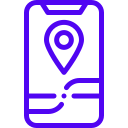
Geolocation: offer offers or promotions based on the user's location.

Mobile applications: develop applications to interact with customers and offer specific services.
Social media marketing for tourism promotion.
Social networks are a powerful channel because they offer a platform to reach a global audience and encourage participation and interaction. Tourism companies can use Instagram, Facebook or X to share visually appealing content, interact with followers, publicize special offers and promotions.
In addition, the use of relevant hashtags and collaboration with influencers can help increase the visibility and reach of social media marketing campaigns. Through social media, it is possible to build a virtual community around a brand, giving users the opportunity to learn about and interact with the brand’s publications.
Here are some key considerations on the use of social networks for tourism promotion:
Presence on social networks
It is essential for tourism destinations to be active on platforms such as Facebook, Instagram and X; where each social network can fulfill a specific purpose:
- Facebook: stands out as the main platform for tourism destination promotion, with a broad base of followers.
- Instagram: positions itself as the main social network to generate interaction with users, especially through visual content.
- X: evolves into a news and communication channel.
Maintaining an active presence on these networks is essential to remain in the minds of travelers and capture their attention.
Type of publications
Images and videos tend to generate more interaction.
- Sharing travel experiences, pictures of scenic locations, local activities and events helps to establish an emotional connection with potential visitors.
Engagement and communication
Maintain continuous interaction with followers, responding to their comments and messages.
Employ stories on Instagram and Facebook to present ephemeral and authentic content.
Conduct polls or pose questions to actively engage the audience.
Influencers and collaborations
- Working with influencers who have an affinity with the tourism destination can be beneficial, as their followers trust their recommendations.
- Organizing collaborations with hotels, restaurants and local activities to promote each other can boost the visibility and attractiveness of the destination.
Email marketing and loyalty strategies
This tool allows you to reach customers directly with personalized and relevant messages. Companies can use email marketing to:
-
- Inform customers about special offers, promotions and events.
- Solicit feedback and reviews after their experience.
In addition, email list segmentation and message personalization can help improve open and conversion rates, as well as build customer loyalty and loyalty.
That’s why, below are some strategies you can implement:
before sending emails, it is essential to define your objectives, the frequency of sending, the appropriate content for each customer and other relevant details.
after purchase, customers prefer to receive emails from real people rather than generic company messages.
Use personalized language and make sure emails come from identifiable members of your team.
instead of focusing solely on promoting your services, share relevant and useful content. Build your brand personality and establish a deeper connection with your customers.
observe how your customers interact with your emails and adapt your strategies accordingly. For example, if a customer clicks on a specific link, you can send them related content that is of interest to them.
make sure your emails are visually appealing, include a clear call to action and are easy to read on mobile devices.
adding images, videos or GIFs can make your emails more interesting and engaging for your customers.
review open, click-through and conversion rates to evaluate the effectiveness of your strategies and make adjustments if necessary.
Online reputation management and reviews
Online reputation refers to the perception and level of prestige that a brand has on the Internet, formed through the expression of various opinions about it.
These opinions can result in a positive or negative reputation, depending on the quality of the products or services offered.
Having a poor online reputation, or even lacking one altogether, can present significant challenges. However, building a positive online reputation is not an impossible or unattainable task.

In a world where customer opinions have a significant impact on purchasing decisions, online reputation management is critical for tourism businesses. This involves:
- Actively monitoring online reviews and comments.
- Responding in a timely and professional manner to customer concerns.
- Encouraging positive reviews through excellent customer service and memorable experiences.
In addition, companies can use online reputation management tools to monitor their online presence and gain insight into areas for improvement.
To begin building an online reputation, it is essential to have a website. Here it should be noted that today there are free CMSs that make it easy to create.
Key elements that contribute to online reputation include:
brand personality
Value proposition
Analysis of successful campaigns in the
tourism sector in the Americas
Data analytics is essential to evaluate the effectiveness of marketing campaigns in the tourism sector. How is this achieved? By tracking and analyzing key metrics, such as web traffic, conversion rates and return on investment (ROI), tourism companies can identify which strategies are working and where they need to improve. This data analysis also provides valuable insights into customer behavior and preferences, helping to fine-tune future strategies and improve the overall user experience.
In the tourism sector in the Americas, some recent advertising campaigns have achieved great success. The following are some outstanding examples:
“Visit Florida” - Florida Tourism Board
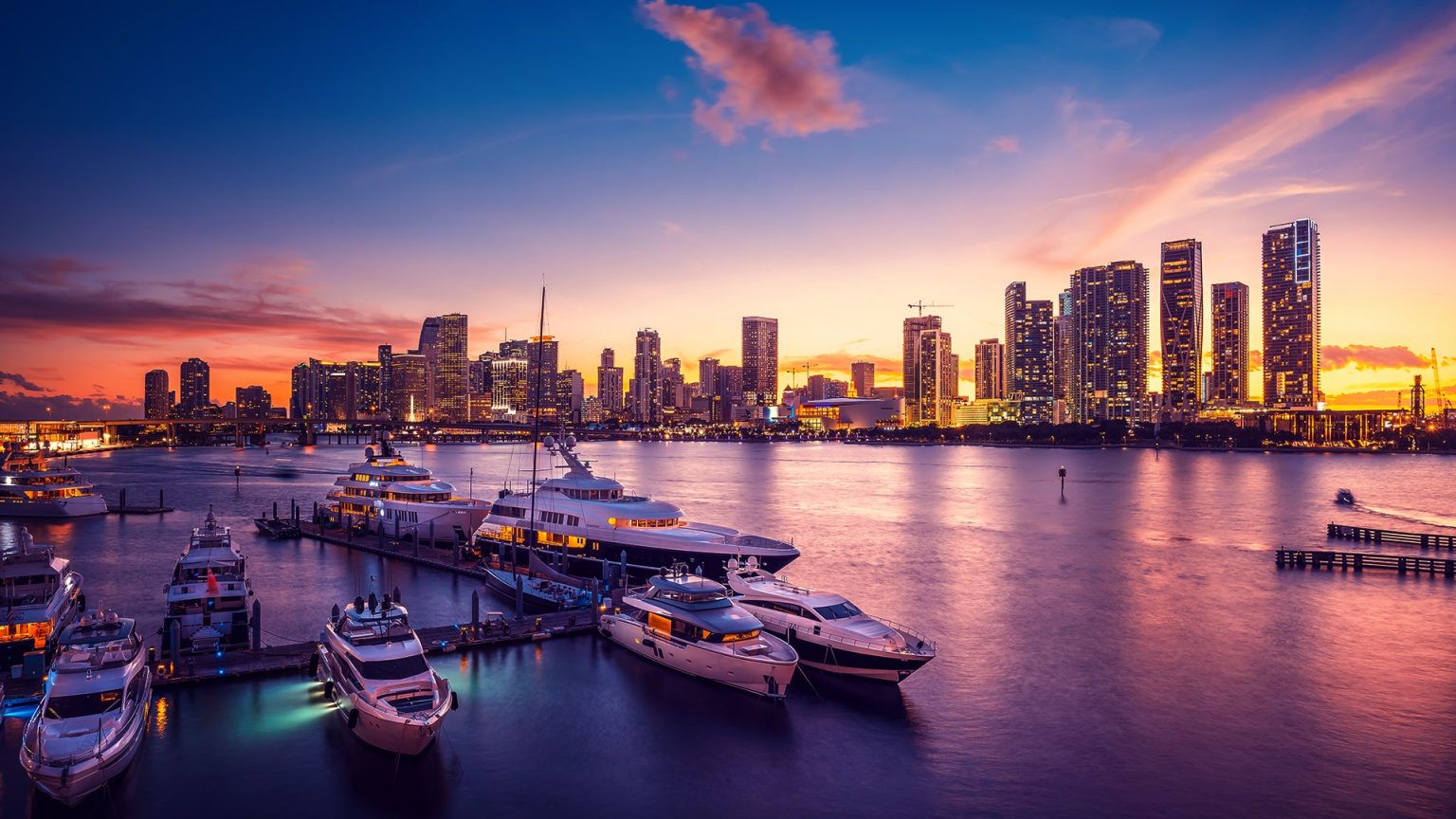
“Despegar” - Travel and Return with Despegar

“Discover Puerto Rico” - Puerto Rico Tourism

Technological innovations in digital tourism marketing
Digital tourism marketing is constantly evolving thanks to emerging technological innovations, such as augmented reality, artificial intelligence and big data. These tools allow companies in the sector to differentiate themselves, improve customer experience and attract more travelers. Here are some of the key technology trends that are transforming digital marketing in the travel industry:
- Augmented Reality (AR) and Virtual Reality (VR)
Augmented and virtual reality have opened up new possibilities for promoting tourism destinations in an interactive and immersive way. AR applications allow users to visualize destinations in real time, while VR experiences immerse travelers in virtual tours that bring them closer to experiencing the destination prior to their visit.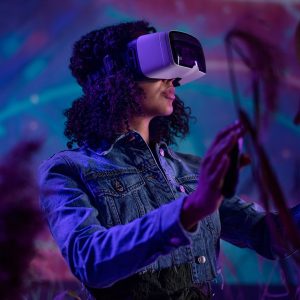
- Big Data and predictive analytics
The analysis of large volumes of data (Big Data) has revolutionized the way tourism companies understand and segment their audience. Thanks to this technology, it is possible to create much more personalized digital marketing campaigns that respond to users' specific preferences and behaviors. In addition, predictive analytics helps to anticipate trends and adjust marketing strategies to be more effective.
- Programmatic advertising and SEO
Digital advertising has become more sophisticated thanks to programmatic buying, which uses algorithms to automate the purchase of online advertising space. At the same time, search engine optimization (SEO) remains critical to ensure that tourism destinations and services appear at the top of search results, attracting more organic traffic.
- Mobile marketing
With most travelers using their mobile devices to search for information and make bookings, mobile marketing has become essential. Mobile-optimized campaigns, geolocation-based push notifications and personalized apps allow travel companies to connect with users instantly and in the right context.
- Interactive content and videomarketing
Videomarketing has become a crucial tool in digital tourism marketing. Interactive videos that showcase unique destinations, activities and experiences better capture users' attention and are more likely to be shared on social networks, increasing brand visibility.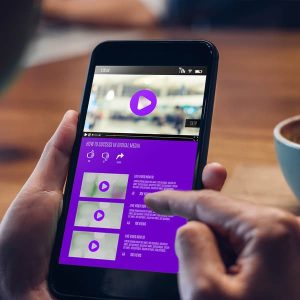
- Artificial Intelligence (AI) in marketing personalization
AI has transformed the way travel companies personalize the customer experience. From chatbots that offer instant assistance on websites and social networks, to automated recommendations based on user preferences, AI enables more direct and efficient communication, improving both engagement and conversion.
With SUBE, it's time to RISE in the right direction!
With our innovative strategies, we will take your brand to new heights in the tourism sector. From creating engaging content to online reputation management and adopting the latest emerging technologies, we are here to help you stand out and attract more customers!
Are you ready to take your business to the next step?
Schedule an appointment right now and let’s start working together to achieve your digital marketing goals in the travel industry don’t miss this opportunity to stand out in such a competitive market!


